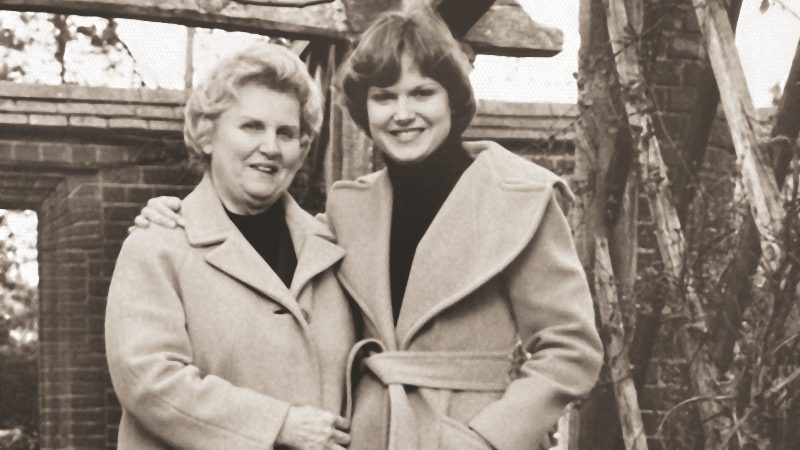It was to be a day of joy and celebration. Every year, the Jewish religious cycle concludes with the completion of the reading of the Torah and a celebration known simply as “rejoicing in the Torah.” The Torah is the five books of Moses, the first books of the Bible. This year, on October 7th, Shabbat, the day the celebration was to begin, Hamas infiltrated Israel and slaughtered more than a thousand Jews in the most barbaric manner possible, to inflict not merely pain but humiliation.
Christians the world over have many ideas about Israel in prophecy and how God relates to the Jewish people. Adventists uniquely approach the world through the lens of the great controversy between Christ and Satan. We understand that Satan uses every means he can to wage war against God and His followers. We are less confident that we understand the role of the Jews in God’s plan today. But the Bible is not ambivalent. Paul emphatically declares that God has not rejected His people (Romans 11:1). However, God’s plan to include Gentiles in His community of called-out saints meant that the national structure of theocracy—i.e., the nation of Israel—had to give way to the church.
But what does this mean for Jews today? Just because God’s plan expanded beyond Israel did not lessen Satanic hatred for the Jews. History tells us all we need to know about this. When Britain began to press for a Jewish state in what was then called Palestine, many rabbis opposed the plan, believing that the dispersion of the Jews was a punishment from God and that it would only be Messiah who would restore Jews to Israel. But after the Shoa (Holocaust), Jews had nowhere to go—none of the Western nations wanted them. God, in His infinite grace and mercy parted the waters and made a way for Jews to return to Israel. The United Nations voted to partition Palestine into a Jewish and Arab state. But the Arabs rejected the plan and made war on the Jews.
Jews have responded to this demonstration of God’s mercy by returning to Him. Today, despite the secularization of the Western world, Jews have become more religious, returning to worship God in both the Jewish and Christian context.
Adventists, ever sensing the potential imminent return of Christ, understand that it will be preceded by a universal rejection of God’s law and the persecution of the saints who are distinguished by their observance of Sabbath. But because we live in our own uniquely Christian bubble, we overlook the historical fact that God’s faithful Sabbath-keeping Jews have been the unique object of Satanic hatred for thousands of years, beginning with Pharoah’s hot pursuit of the fleeing Israelites to the Red Sea. In the end, Adventists expect to share the historic lot of Jews in facing the brunt of Satanic hatred.
The attack by Hamas may be seen as the latest manifestation of Satanic hatred against God’s people. As a result, Israel is waging a war for its very survival against an enemy bent on its annihilation. Adventists have a sound theological basis for supporting the right of Jews to live in peace in their ancestral home and to recognize God’s mercy in restoring Jews to their own land. Such support, however, cannot come at the expense of dehumanizing Palestinians or minimizing the suffering of innocents. The entire human family has a claim to God’s love and mercy.
Satanic hatred is not restricted to Jews but finds ample expression whenever members of the human family engage in bigotry and discrimination against those who don’t belong to their kind.
Nor is hatred for Jews geographically limited. Arabs around the world have celebrated the horrific attack by dancing in the streets, chanting “Heil Hitler,” “Death to Jews,” and a slogan about driving the Jews “from the river to the sea.” These demonstrations are not limited to Arabs or Muslims and, indeed, have disgraced more than a few prominent American universities. American Jews no longer feel safe on their college campuses. There has been an explosion of antisemitic incidents. Seeing these developments through the lens of the great controversy will give Adventists wisdom in how to relate to these troubling developments. Adventist clergy and laity alike are encouraged to reach out to their local synagogue and/or Jewish community center, express their support, and find ways to partner in combating antisemitism.
As God’s children we must advocate for acceptance of everyone, regardless of their ethnic or religious background or beliefs. We are called to be pacifiers in a world full of hatred. We are called to be the healing hands of Jesus in a world full of pain and suffering. God looks on all of us with love from above. On all of us. To Him we are not Jews or Muslims or Christians. We are all His children. His words are very clear: “Love one another. As I have loved you, so you must love one another” (John 13:34, NIV).
_____________________________
Alan J. Reinach, Esq., is the executive director of the Church State Council, the religious liberty educational and advocacy arm of the Pacific Union Conference.
De la alegría a la aflicción
Por Alan J. Reinach
Iba a ser un día de alegría y celebración. Cada año, el ciclo religioso judío concluye con la finalización de la lectura de la Torá y una celebración conocida simplemente como «regocijo en la Torá». La Torá son los cinco libros de Moisés, los primeros libros de la Biblia. Este año, el 7 de octubre, Shabat, el día en que debía comenzar la celebración, Hamas se infiltró en Israel y masacró a más de mil judíos de la manera más bárbara posible, para infligir no solo dolor sino humillación.
Los cristianos de todo el mundo tienen muchas ideas sobre Israel en la profecía y cómo Dios se relaciona con el pueblo judío. Los adventistas abordan el mundo de manera singular a través del lente del gran conflicto entre Cristo y Satanás. Entendemos que Satanás usa todos los medios que puede para hacer guerra contra Dios y sus seguidores. Estamos menos seguros de entender el papel de los judíos en el plan de Dios. Pero la Biblia no es ambivalente. Pablo declara enfáticamente que Dios no ha rechazado a su pueblo (Romanos 11:1). Sin embargo, el plan de Dios de incluir a los gentiles en su comunidad de santos significaba que la estructura nacional de la teocracia, es decir, la nación de Israel, tenía que dar paso a la iglesia.
Pero, ¿qué significa eso para los judíos de hoy? El hecho de que el plan de Dios se expandiese más allá de Israel no disminuyó el odio satánico hacia los judíos. La historia nos dice todo lo que necesitamos saber sobre eso. Cuando Gran Bretaña comenzó a presionar por un estado judío en lo que entonces se llamaba Palestina, muchos rabinos se opusieron al plan, creyendo que la dispersión de los judíos era un castigo de Dios y que solo sería el Mesías quien restauraría a los judíos a Israel. Pero después de la Shoa (Holocausto), los judíos no tenían a dónde ir, ninguna de las naciones occidentales los quería. Dios, en su infinita gracia y misericordia, dividió las aguas y abrió un camino para que los judíos regresasen a Israel. Las Naciones Unidas votaron a favor de dividir Palestina en un estado judío y otro árabe. Pero los árabes rechazaron el plan e hicieron la guerra a los judíos.
Los judíos reaccionaron a esa demostración de la misericordia de Dios volviéndose a él. En la actualidad, a pesar de la secularización del mundo occidental, los judíos se han vuelto más religiosos, volviendo a adorar a Dios tanto en el contexto judío como en el cristiano.
Los adventistas, considerando siempre el potencial e inminente regreso de Cristo, entienden que será precedido por un rechazo universal de la ley de Dios y la persecución de los santos que se distinguen por su observancia del sábado. Pero debido a que vivimos en nuestra propia burbuja exclusivamente cristiana, pasamos por alto el hecho histórico de que los fieles judíos de Dios que guardan el sábado han sido el único objeto del odio satánico durante miles de años, comenzando con la persecución ardiente de faraón a los israelitas que huían al Mar Rojo. Al final, los adventistas esperan compartir la suerte histórica de los judíos al enfrentar el peso del odio satánico.
El ataque de Hamas puede ser visto como la última manifestación del odio satánico contra el pueblo de Dios. Como resultado, Israel está librando una guerra por su supervivencia contra un enemigo empeñado en su aniquilación. Los adventistas tienen una base teológica sólida para apoyar el derecho de los judíos a vivir en paz en su hogar ancestral y a reconocer la misericordia de Dios al restaurar a los judíos a su tierra. Sin embargo, ese apoyo no puede hacerse a expensas de deshumanizar a los palestinos o minimizar el sufrimiento de los inocentes. Toda la familia humana tiene derecho al amor y a la misericordia de Dios.
El odio satánico no se limita a los judíos, sino que encuentra una amplia expresión cada vez que los miembros de la familia humana se involucran en la intolerancia y la discriminación contra aquellos que no pertenecen a su especie.
Tampoco el odio hacia los judíos está limitado geográficamente. Los árabes de todo el mundo han celebrado el horrible ataque bailando en las calles, coreando «Heil Hitler», «Muerte a los judíos» y un eslogan sobre expulsar a los judíos «desde el río hasta el mar». Esas manifestaciones no se limitan a árabes o musulmanes y, de hecho, han deshonrado a no pocas universidades estadounidenses prominentes. Los judíos estadounidenses ya no se sienten seguros en sus campus universitarios. Ha habido una explosión de incidentes antisemitas. Ver esos acontecimientos a través del lente del gran conflicto dará a los adventistas sabiduría sobre cómo relacionarse con estos preocupantes acontecimientos. Se anima tanto al clero adventista como a los laicos a que se acerquen a su sinagoga local y/o centro comunitario judío, expresen su apoyo y encuentren formas de colaborar en la lucha contra el antisemitismo.
Como hijos de Dios, debemos abogar por la aceptación de todos, independientemente de su origen étnico o religioso o sus creencias. Estamos llamados a ser pacificadores en un mundo lleno de odio. Estamos llamados a ser las manos sanadoras de Jesús en un mundo lleno de dolor y sufrimiento. Dios nos mira a todos con amor desde lo alto. A todos. Para él no somos judíos, ni musulmanes, ni cristianos. Todos somos sus hijos. Sus palabras son muy claras: «Amaos los unos a los otros. Como yo os he amado, así os améis los unos a los otros» (Juan 13:34).
_____________________________
Alan J. Reinach, Esq., es el director ejecutivo del Church State Council, el brazo educativo y de defensa de la libertad religiosa de la Pacific Union Conference.






